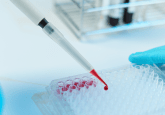Recommendations for adaptation and validation of commercial kits for biomarker quantification in drug development

Increasingly, commercial immunoassay kits are used to support drug discovery and development. Longitudinally consistent kit performance is crucial, but the degree to which kits and reagents are characterized by manufacturers is not standardized, nor are the approaches by users to adapt them and evaluate their performance through validation prior to use. These factors can negatively impact data quality. This paper offers a systematic approach to assessment, method adaptation and validation of commercial immunoassay kits for quantification of biomarkers in drug development, expanding upon previous publications and guidance. These recommendations aim to standardize and harmonize user practices, contributing to reliable biomarker data from commercial immunoassays, thus, enabling properly informed decisions during drug development.
Today the pharmaceutical and biotechnology industries are confronted with a myriad of challenges, including increasing drug development costs, decreasing drug approvals, as well as societal pressure to reduce healthcare costs that comes with healthcare reform legislation [1]. In 2004, the US FDA published a document recognizing these issues titled “Innovation/Stagnation: Challenge and Opportunity on the Critical Path to New Medical Products” and launched the Critical Path Initiative (CPI) [2]. The goal of the CPI was “to stimulate and facilitate a national effort to modernize the scientific process through which a potential human drug, biological product or medical device is transformed from a discovery or ‘proof of concept’ into a ‘medical product’.” It was recognized that there is a need for better measures of the efficacy and safety of drugs. In this regard, an opportunity for the use of biomarkers in drug development was highlighted and has evolved into standard practice within most pharmaceutical and biotechnology companies.
Click here for the full article.





